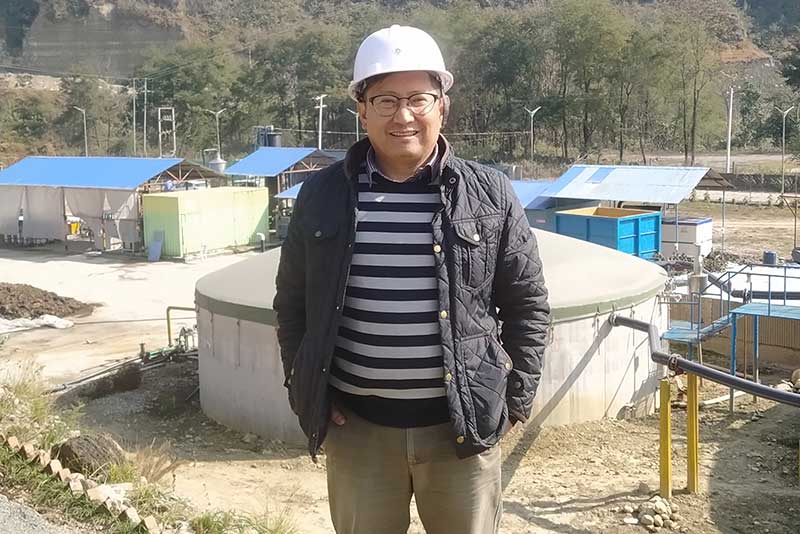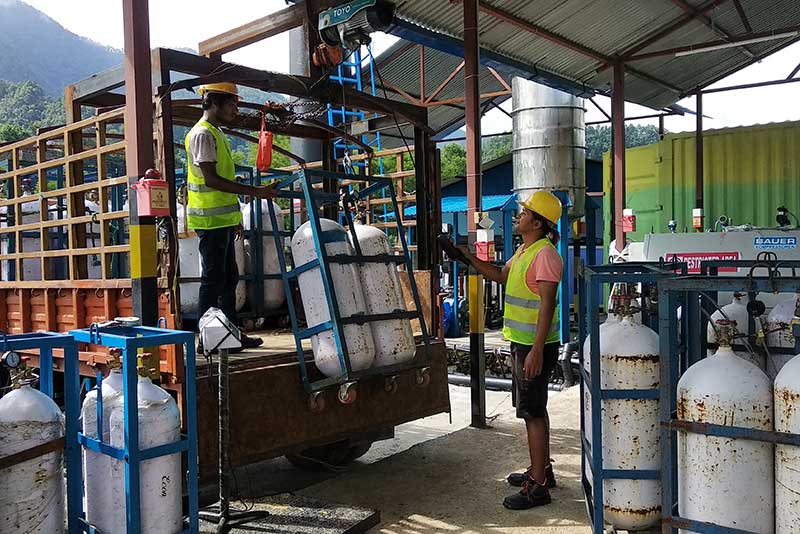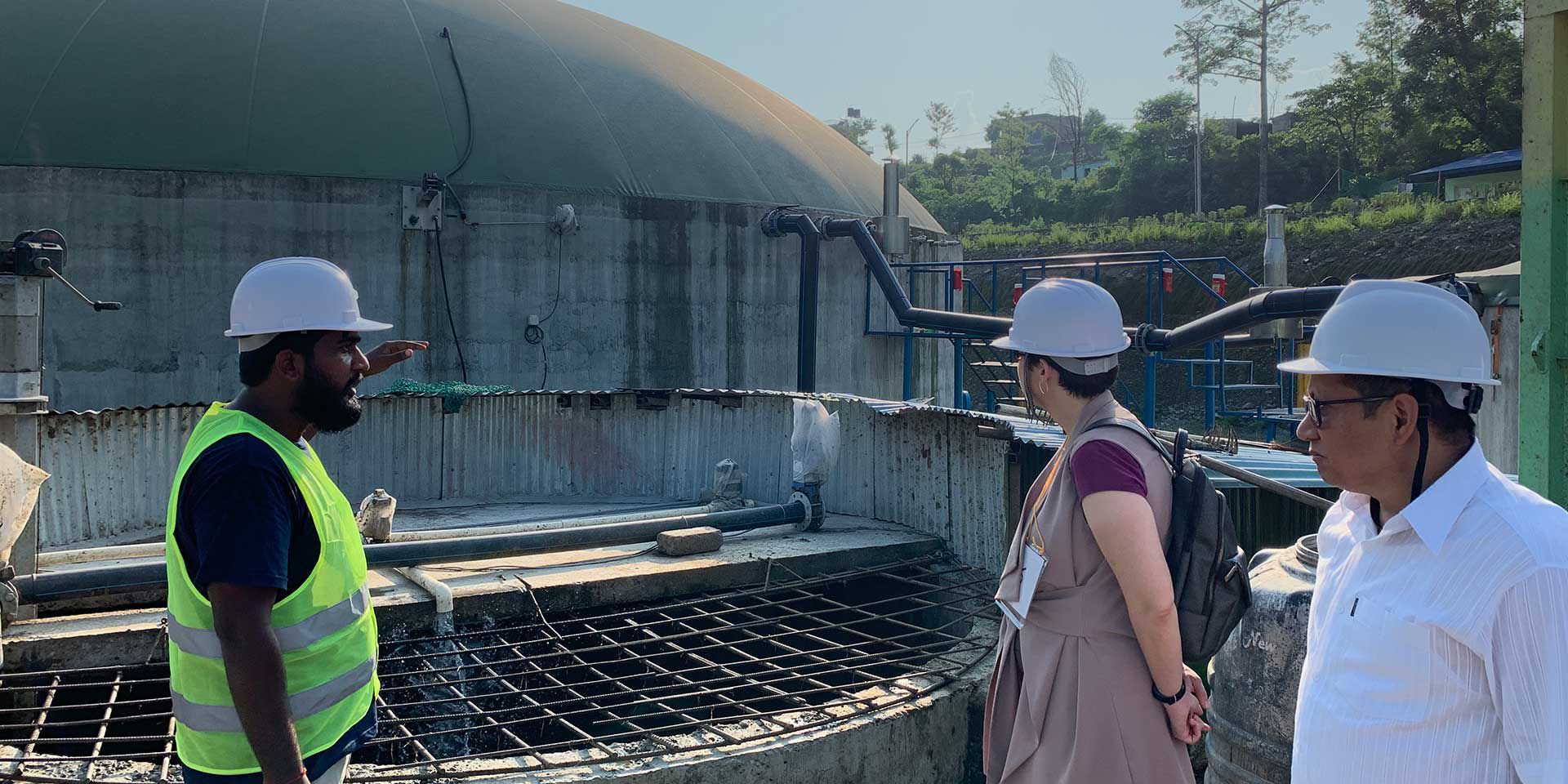In early 2020, Gandaki Urja Pvt. Ltd., Nepal’s largest commercial scale biogas plant, began distributing bio Compressed Natural Gas (bio-CNG)--a form of clean fuel generated from livestock and farm waste--to customers in Pokhara, in western Nepal. In addition to the new clients, Gandaki Urja’s team had good reasons to be upbeat: in late 2019 it received a Nepali Rupee 50 million ($413,000) investment from IFC-backed Business Oxygen (BO2), Nepal’s first private equity fund and the country’s only climate-focused fund. Company leaders were confident of reaching full production capacity quickly and expanding further.
But that was before COVID-19.
As the pandemic took hold, strict social distancing measures forced closures of many of Gandaki Urja’s clients—restaurants especially. As weeks went by and those businesses remained shuttered, with no need for bio-CNG, Gandaki Urja’s founder, Kushal Gurung, came close to shutting down his company.
Then an unlikely request came from Manipal Hospital, one of three local hospitals designated to treat COVID-19 patients, and one of the largest medical facilities in Nepal. The 750-bed institution was struggling to procure enough cooking gas to support its overall operations. Although the volume of requests was low—too low to make good business sense—Gandaki Urja decided to lend a helping hand by providing bio-CNG.

“We wanted to chip in where we could,” said Kushal Gurung.
“It didn’t make sense financially to keep the operations running just for the hospital,” Gurung said. “But these are difficult times and we wanted to chip in where we could. And so, we decided to respond to the call from the hospital as they were at the frontline of the fight against the virus.” As word of mouth spread, Fisthtail Hospital, also in Pokhara, reached out to the company for biogas supplies so that its cafeteria kitchen could keep operating.
By offering to help hospitals meet the demands of the COVID-19 era, the company was adapting to a new normal—while helping fellow citizens and the environment.
Environmental Benefits of Biogas
Bio-CNG has several advantages compared to liquified petroleum gas (LPG). It helps to reduce emissions of greenhouse gases and allows farmers to boost their incomes from selling raw waste. It also helps nations lower the number of imports—and save foreign currency reserves--by reducing dependence on chemical fertilizers and LPG.
Fisthtail Hospital, for example, is using fewer biogas cylinders compared to LPG on daily basis. And while the price of biogas is same as LPG, customers save up to 30 percent more on biogas as it has higher calorific value.

Bio Compressed Natural Gas is a form of clean fuel generated from livestock and farm waste.
Gandaki Urja now plays an important role in climate adaptation and in building resilience, according to Siddhant Pandey, CEO of BO2. In addition to investments from IFC, BO2 investors include the Pilot Program for Climate Resilience (PPCR) and the United Kingdom’s Department of International Development, DFID.
Adapting to New Demands
Even as lockdown restrictions in Nepal are beginning to ease, Gandaki Urja is aware of the need to continue developing a new and different client base because traditional clients such as restaurants and party palaces will not be operating at full capacity.
Before the lockdown, the company had over 30 business customers, both for gas and fertilizers, with the capacity to produce 200 cylinders of cooking gas daily and 11,000 tons of organic fertilizers every year.
“This has forced us to take a fresh look at our business model,” said Gurung. “We have already added several new clients, including a monastery, to our list.” Gurung and his team are looking to supply 60 cylinders of biogas daily in next two months to old and new clients.
The process of changing the corporate business model to meet current demands hasn’t been cheap. Some of the cash raised for expansion of the biogas plant is being used as working capital to keep the plant running while paying employees and suppliers.
Despite the many changes Gandaki Urja has been through since COVID-19 took hold, its strong ties to farmers have remained constant. The company business model relies on farmers, who source livestock and farm waste locally and then producing bio cooking gas and organic fertilizers. Now, farmers have become even more important sources of revenue than they were before because chemical fertilizers, which are imported, are short in supply.
As the planting season begins, demand for fertilizers has increased. Since the lockdown began on March 22, the company has delivered over 100 tons of fertilizers to big farms and farmers affiliated with cooperatives across Pokhara.
Join the conversation: #IFCimpact
Published in June 2020.
